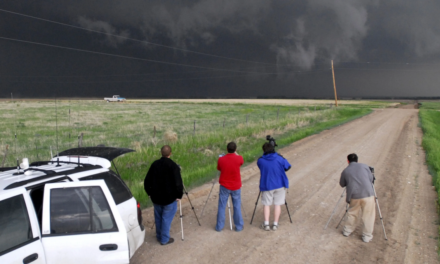Starting work on the three year AHRC project ‘The History of Forgotten TV Drama in the UK’ at Royal Holloway has led me to think a lot about to what extent I remember television myself, and the reliability of my own memory.
A widespread false memory syndrome can afflict even programmes that are ostensibly well remembered. The experience of systematically watching all 53 episodes of The Sweeney (ITV, Thames 1974-78), for example, is one that often contradicts popular cultural memory of the show. The parts of the programme that constitute what Nick Love (director of the recent Sweeney film revival) describes as “an iconic media brand”, the same few endlessly recycled quips and stunts that make up the geezers-motors-and-birds cultural memory of the programme do not constitute the majority of the programme as it actually was, often pretty downbeat, dialectical about the purpose and value of policing, and with a distinctively rueful feel.
If this is the case for such a well-known programme, how can we then trust our own personal memories of the obscure and forgotten television that we enjoyed, looked forward to seeing and cherished odd memories of? This question was in the back of my mind when a particular favourite programme of my teenage years, the BBC2 sitcom Colin’s Sandwich (1988-90) resurfaced on YouTube the other month, a few days after the death of its star, Mel Smith. Although it gathered a reasonable amount of publicity at the time of broadcast, Colin’s Sandwich is not a programme that has passed into television history. Nobody will ever write a MUP ‘Television Series’ monograph about the career of its writers, Terry Kyan and Paul Smith. Unseen by myself (or seemingly anyone else) since being repeated in 1992, I have never subsequently heard anyone talk about it. The bits that I thought I remembered vividly did not appear to be memories shared by anyone else, even on Internet vintage TV forums. This obscurity has continued even now that the programme is back in YouTube circulation (via authentic eighties off air VHS recordings with original BBC2 idents and occasionally wobbly tracking) and despite Mel Smith’s posthumously raised profile – still only a few hundred people have watched them online.
Mel Smith plays the everyman figure of Colin Watkins in the series, an North London office worker in the complaints department of British Rail with a rather arch girlfriend Jenny (Louisa Rix) – who you feel really could be doing better than Colin – and some literary aspirations. Smith’s lugubrious appearance, fanciful monologues of spiralling absurdity, and the show’s shabby metropolitan setting led to much of its initial publicity describing it as a Hancock’s Half Hour (BBC Television, 1956-61) for the eighties. This turned out to be an unwise strategy, as subsequent unenthused press coverage invariably then concentrated on unfavourable comparisons to its venerated antecedent.
The main reason why Colin’s Sandwich was commissioned by the BBC appears to have been as a useful solo star vehicle for Smith, at the time one of the BBC’s most popular comedians in partnership with Griff Rhys Jones. Watching the show, it is almost impossible to imagine anyone else playing Colin, but at the same time Mel Smith’s presence in every scene does dominate the programme to a degree that threatens to overpower it.
Colin’s distinctive perception of the world and his place within it is realised throughout the series via two particular dramatic devices, both playing to particular strengths of the Smith persona and performance style. Comic monologues occur frequently, increasingly absurd rants sometimes delivered to others (occasionally – especially during Colin’s best man speech at a wedding reception – with humiliating consequences) and sometimes soliloquys by Colin alone in his flat. Although these speeches always contain several really funny ideas, and Smith is of course a very talented comic performer, they can become repetitive, and slow down the narrative of each episode. Rather more successful, and unexpected, is the continual use of voice-over to represent Colin’s unspoken thoughts throughout scenes, usually unspoken frustration and impatience, akin aurally if not visually to Channel 4’s Peep Show (2003-2014). This bold device, hard to achieve in a sitcom recorded in front of a live studio audience, displays Smith’s gifts for comic facial expressions to their fullest extent, for example the in scene in which Colin attempts to stifle a yawn during a protracted heart-to-heart conversation that starts at 17.35 in this episode:
(VIDEO NO LONGER AVAILABLE)
The second series of Colin’s Sandwich was screened in 1990 with little fanfare, but is a noticeably a step up from the first, a more assured and emotionally mature programme that goes into unfamiliar comic territory, particularly in its last two episodes in which Colin copes (badly) with the death of his father culminating in what I think is the highlight of the series, Colin breaking down with grief on a make-and-break French holiday with Jenny. I found the protracted eight minute scene of Colin making a scene in a restaurant unsettling to watch in 1990, and am even more impressed with it after finally getting to see it again in 2013, with the mounting sense of someone messing up a very good thing dependent upon the patience with which the scene develops, becoming more unsettling and less funny without breaking the viewer’s emotional engagement.
Now that Mel Smith is no longer alive, it’s hard not to read some extra-textual poignancy into the character of Colin, especially as the show is so evidently constructed as a star vehicle for him. Watching Mel Smith appear as himself on chat shows, I always got a sense of someone trapped in a rather tiresome star persona, of gruff plain-speaking funnyman. (A friend of mine went to a book signing for the Utterly Utterly Merry Comic Relief Christmas Book in 1987, attended by Smith and other luminaries of the time, and noticed that every time he signed his name outrageous funnyman Mel observed, “Good practice for wanking!” – not a particularly amusing observation even when said just the once. When my friend reached Smith he interrupted him and told him that he didn’t have to say it, causing an embarrassed silence.) But a cursory look into Mel Smith’s biography reveals a considerable hinterland, working at the Royal Court Theatre as an assistant director before turning to TV sketch comedy, and a convincing straight role as a tough property developer in Tom Clarke’s characteristically bleak serial Muck and Brass (Central, 1982). Perhaps something of Smith’s own situation is worked into Colin’s frustrated literary ambitions (which, crucially, are not delusional in the series) and frustration with blokeish rituals. Certainly it’s a comedy performance that still continues to make me laugh a lot, and contains some surprising moments of grace and finesse.
As with a lot of old television, Colin’s Sandwich offers an uneasy reintroduction to the world of the time that it was made when watched by someone old enough to have lived then, but this impression becomes particularly marked in a realistic comedy of the everyday. This uncomfortable sensation isn’t just found in the surface details that you notice (the copy of the Sun in Colin’s office bearing the headline ‘FERGIE”S DAD IN VICE SHOCK’), but the features of everyday life that have subsequently disappeared – being able to buy Sunday papers on Saturday nights at Central London railway stations, the old licensing laws that Colin rails against. Particularly notable is the amount of comic mileage extracted from telephone technology – never mind mobile phones, the arrival of 1471 and caller number displays on landlines would scupper several very funny scenes in this series. But, above all, it’s the sense that Colin’s 1988 life (presented as humdrum and unremarkable) itself just wouldn’t be possible now. He has a very steady job working for British Rail (gone by 1996), which is enough for him to have (presumably bought) a rather nice flat for himself in Brent Cross, not a lifestyle that can easily be achieved in London 25 years on.
This brings me to my major conclusion about Colin’s Sandwich when seen again in my early forties. Why did I like this series so much at the time? Part of the reason why the series had the effect it did on me when I was a schoolboy, was that it was presenting a version of an ordinary adult life that a middle-class Londoner like myself might expect to live myself in a couple of decades time. It’s worrying to note that the character of Colin is supposed to be 35… That’s the sort of thing that makes me feel really old. There are several occasional moments of awkward comedy in the series – when Colin Watkins has to give up drinking for a fortnight and has to endure a nightmarish works pub crawl, or an episode when he accepts an invitation to be best man for a works colleague and rails against the ghastliness of stag nights and wedding receptions – that struck a particular chord of emotional recognition within me when I first watched them, empathizing most strongly with Colin’s frustrations at the impositions of rituals and ceremonies and having to fit with a series of expectations that he can see through, even though such experiences don’t arise in quite the same way in your life when you’re sixteen years-olds. It’s also worth noting that I watched the programme with my parents, who both found it funny and found Colin and Jenny sympathetic characters. Sometimes, you come across things in fiction when you’re young that tell you exactly the sort of person that you’re inevitably going to become, jokes that crystalize your still nascent sense of what life is going to be like for you. When we remember the television that we emotionally invested in, we remember something of ourselves. Be prepared for twinges of uncomfortable self-recognition when you watch again after many years.
Billy Smart works as Research Officer on the AHRC-funded ‘The History of Forgotten British TV Drama’ project at Royal Holloway.





I thought it was only me that remembered this programme.
Looking back I remember Colin’s Samdwich fondly, even though his constant fretting and over-analysing used to annoy me (much like the interference from Timothy Lumsden, Harold Steptoe or Granville’s older companions in Sorry, Steptoe & Son and Open All Hours respectively).
I’m about to attempt tacking down this series… hopefully in 2019 it’s possible. Whatever would Colin say about life today!?
Thanks for the review – really interesting and well put together